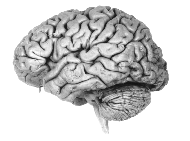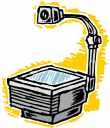
Psychology 100 - Introduction
to Psychology
Fall,
2019: 4th Period & 6th Period MWF -
Room
E-117 SMAC
Lab/Discussion Sections: Thursdays, 2nd, 3rd, 5th, or 6th period -
Rooms as Assigned.

INSTRUCTOR:
Frank T.
McAndrew
(SMC E131, Ext. 7525)
e-mail: fmcandre@knox.edu.
TEXTBOOK:
Introduction
to Psychology (11th Ed.) by James W. Kalat (ISBN:
978-1-305-27155-5; Regular Student Edition) (ISBN: 978-1-305-63054-3;
Loose-leaf Edition)
LAB/DISCUSSION
TEACHING ASSISTANTS:
Jillian Morris, Dianell Vega, Nafisa Rahman, Khanh-Linh Duong, Alyssa
Reid, Clio McCormick, Minnie Kang, Irein Thomas
INSTRUCTOR FOR SUPPLEMENTAL SECTION
OF COURSE: Leonard Monterey
PSYCHOLOGY DEPARTMENT
WEB PAGE
ADVICE ABOUT DOING
WELL IN
THE CLASS
MORE ADVICE ABOUT
DOING WELL IN THE CLASS
GOALS
OF THE COURSE
Welcome
to
Psychology 100! I sincerely hope that you have a good
experience
this term and that at the end you think it was time well spent, whether
this is the only psychology course that you will take or just the first
of many. There are a number of goals that I have for this
course. I would like you to become a more
sophisticated
observer of human
behavior. By this I mean that you will learn to think
about humans scientifically, relying on data and evidence for your
beliefs as you come
to understand the limitations and pitfalls of intuition. In
other
words, I would like you to become more skeptical in almost all
ways. In your
life you will be regularly exposed to outrageous,
unsubstantiated claims about products, health remedies, and various
other
phenomena, and I hope that as a result of taking this course you will
be at least
a little bit better at evaluating the quality of evidence used in
support of such
arguments. In addition to my informal goals, every course
that
you take is designed to help you acquire formal knowledge and
skills. This course will help you achieve the following
departmental learning goals:
1) Apply the scientific method to studying the mind, the brain, and
behavior.
2) Understand the basic theoretical approaches and classic empirical
findings of psychology.
3) Effectively communicate both orally and with clear,
grammatically-correct writing.
The written lab reports and recitation section discussions address
goals #1, #2, & #3
above. The
textbook reading and lectures address goals #1 & #2; the exams
and recitation section quizzes are
designed to assess how well you have achieved the first two learning
goals.
TOPICS
and READINGS
Wednesday,
September 18- FIRST DAY OF CLASS
Thursday,
September 19: LAB SECTIONS MEET AND GET ORGANIZED
Introduction
to the Field of Psychology & It's Methods of
Research
(Chapters 1 & 2)
Thursday, September 26: LAB
#1 - Drawing
Conclusions from
Experimental Data: A Mirror-Drawing Experiment
TEST
#1 (FRIDAY, SEPTEMBER 27 - Chapters 1
& 2)
The
Biology of Behavior (Chapter 3)
Thursday, October 3: Lab #2 - Reaction time as a measure of the speed
of neural transmission;
DISCUSSION:
Brain, Nervous System, & Behavior - Readings: Half
a World (V. S. Ramachandran
& D. Rogers-Ramachandran); Phantoms
(O.
Sacks)
TEST
#2 (MONDAY, OCTOBER 7 - Chapter 3)
Learning:
Operant &
Classical
Conditioning (Chapter 6)
Cognitive
Psychology: Memory & Attention (Chapter 7 & pp. 251-261)
WEDNESDAY,
OCTOBER 23 - FALL INSTITUTE DAY - NO CLASS
TEST # 3 (FRIDAY, OCTOBER 25- Chapters 6 &
7; &
pp.
125-139 & pp. 251-261)
Consciousness
(Chapter 10)
Human Development (Chapter 5)
Social Psychology (Chapter 13)
TEST # 4 (FRIDAY, NOVEMBER 8- Chapters 5, 10, 13)
Personality & Emotion (Chapter 14; pp.
379-400)
Thursday, November 14: DISCUSSION:
Mental Illness, Bipolar
Disorder, & a Dead, Cold, Hairy Leg
Readings: The man who fell
out of bed
(O. Sacks); In
their shoes: Understanding what bipolar disorder feels like (B.
Krans);
My journey back to sanity
(S. Dime-Meenan)
The Nature & Treatment of Mental
Disorders (Chapter 15)
TEST #5 (During Scheduled Final Exam Time: NOT
COMPREHENSIVE! -
Chapters 14, 15, & pp. 379-400)
Your
grade will be based upon the percentage of total possible points
that you accumulate on the five tests, on five lab reports
that you will be writing, on quizzes and class discussion in the weekly
recitation section, and on attendance points acquired in the lab and
recitation sections. All tests will be multiple-choice. In
order to acclimate you to the course, the first two tests will be
shorter than, and be based upon less material than, the last three
tests.
Letter
grades will be as follows:
A = 93-100%
A- = 90-92%
B+ = 88-89%
B = 83-87%
B- = 80-82%
C+ = 78%-79%
C = 73-77%
C- = 70-72%
D+ = 68-69%
D = 63-67%
D- = 60-62%
F = <60%.
THE LABS
& DISCUSSIONS (Thursdays)
On Thursday of every week you will
attend a laboratory/Discussion section led by an upper class psychology
major. You will receive two points just for attending each one of
these sessions. During each session, you will engage in a brief
demonstration or experiment, OR you will engage in a discussion of
assigned readings. Some weeks, both of these things will
happen.
In weeks in which there is a lab, an experiment will provide the data
needed to write up the lab report for that week, and it will be due on
the following Thursday. You are required to write SIX lab reports
throughout the term. All reports will be typed, double spaced,
and written in the appropriate format. The quality of your
writing WILL be a contributing factor in the grade that you
receive. Each report will be worth 10 points. While the
length and format will differ a bit from lab to lab, the average report
will only be about two or three pages in length.
Lab reports will NOT be accepted late. If you do not hand in a
report on the Thursday that it is due, you will receive a score of
zero. I will, however, DROP YOUR LOWEST LAB REPORT SCORE so that
only five lab grades will be figured into your final grade in the
course.
The discussion days are designed to give you the chance to read some
interesting things and discuss them with other students in small
groups. There will frequently be videos and other activities on
the discussion days as well. In each discussion week you will
have “homework” in that you will read one or two articles before coming
to class. These articles have been selected because they are
short, interesting, and relevant to the topic being covered in the
course at that time. Each discussion class will begin with a
brief quiz based upon the assigned readings for the day (worth five
points). The quiz will be followed by class discussion or other
activities for which you will receive up to five more points toward
your final grade. This means that you will receive a weekly total
of up to 10 points on discussion days. The discussion day points
will be easy to get! Just do the readings and show up with
something to say and you will do well.
There are two dates (October 3 and October 17) on which both a lab
and a discussion will occur. Grading on these days will be the
same as any other discussion days, and the lab report will count as a
separate grade.
PARTICIPATION IN PSYCHOLOGICAL
RESEARCH
By participating in
research projects being conducted in our
department, you can earn bonus points(extra credit). You are free to
participate in as many studies as you like, and you will earn one point
for each half-hour of research that is an online survey, and two points
for each half-hour of research that takes place in a laboratory.
However, no one will
earn
more than 8 points through research participation. If you
volunteer to participate in an experiment and fail to
show up, you will no longer be eligible to receive extra credit in this
class.
PLEASE
SEE THE PSYCHOLOGY DEPARTMENT POLICY ON RECEIVING
CREDIT FOR BEING IN EXPERIMENTS.
To download the powerpoint presentations
that were used in the lectures for this
course,
click on the picture of the overhead projector.






